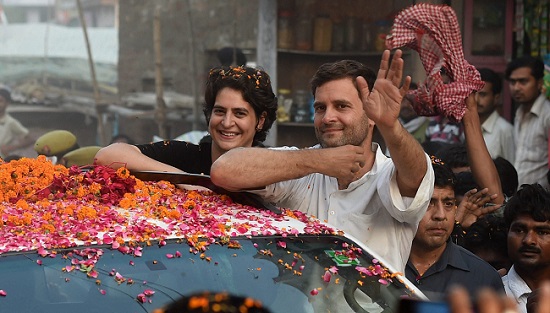
The election process has begun and the ruling party as well as the opposition parties have started reaching out to the people with their claims and counter claims.
The government is claiming to have done a lot for the people, during the last five years, and boast that these five years have been different. As per the data available, the government claims that over 19 crore have got ration cards, 22 crore LPG connection, eight crore duplicate cards and connections detected, 34.7 crore Jan-dhan account have benefited the poor, 27.5 crore have debit cards and of them 18 crore are women; MUDRA loans of Rs 50,000 to Rs 10 lakh have helped 15 crore people and 70% of them are women; 50% villages are digitally connected and roads link up 91% villages. It looks an impressive data, but how far the voter gets impressed by it, only election results will tell. The opposition has not yet started firing its salvos. But they do not agree with all the claims. The Congress and Samajwadi Party have said that they had started many of these programmes and the BJP only carried it forward.
To project itself as a development oriented party, the BJP says that it has taken the benefits to the grassroots and in a graft-free environment. Farmers they say have been given 1.5 times of the cost as minimum support price and 14 crore soil health cards issued. The government has also announced minimum income guarantee of Rs 6,000 to farmer even as the Congress, TRS and other parties have been showering them with loan waivers.
The political mud-slinging would heat up the poll arena but whether these would result in votes for a particular party – nobody is sure. Voters are silent listeners but apply their own logic to accept or reject the claims – some real, some imaginary and some out of the blue. Voting is a complex phenomenon in India and different set of factors play vital role in the political outcome in different parts of the country. In some areas national issues might influence the poll outcome, while in other local and regional issues might be the deciding factors.
It seems, due to lack of a strong national issue except nationalism and military honours, regional and sub-local issues might play a role that party leaders might not have even considered. These local factors might be influencing the lives of common people strongly. Let us take the issue of roads. These are being constructed and entailing huge budgets. It is also burdening people with huge costs in tolls and raking up never heard questions. People now have started questioning why a road should cost beyond the estimates of the NHAI. They wonder why the national highways and even some expressways are not as good as they are claimed to be. They are also questioning why connecting roads built by the state governments are in a state of dilapidation. Even the toll roads are far below the standard. Should people have to shell out extra to get the basic?
Is corruption an issue? It is but not at the level it was in 2014. Graft and Ram temple have become far softer issue or the barbs are hitting all. The Lok Sabha elections despite pan-national approach are to be fought on clans, classes, castes, religious groupings. Economy and development may be a concern but parochial group interests always sway the minds. Democracy is a game of numbers.
The Mahagathbandhan is still emerging. In UP the SP-BSP may look formidable. There is a third element – Congress. With Priyanka Gandhi entering the fray and softly cajoling and reassuring the people, it can make a change in electoral arithmetic. If Congress does even a little better, its tally, according to observers, can swell. Congress approach this time is soft, persuasive attack. It also is trying to develop an emotional connect with the people against the BJP’s high patriotic emotional sentiments backed with extolling the uniformed people.
One solace for the BJP is that the opposition still does not look to be a unified force to match aggression and sharp attack of prime minister Narendra Modi. The scenario may change if the opposition suddenly starts sprinting. Whatever the election outcome be, this time elections are more complex and both – the ruling dispensation and the opposition parties are gasping to have a grip over the issues.
